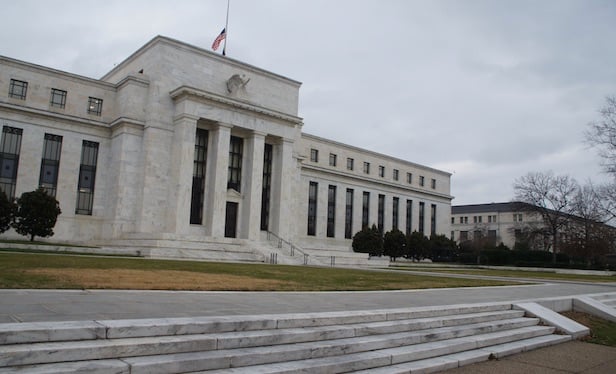
WASHINGTON, DC–The Federal Reserve Bank's latest Beige Book report offers a mixed-bag of observations for the commercial real estate sector. On one hand, it finds that commercial real estate activity and construction have improved since its last report in March. On the other, though, the report notes there are widespread reports that steel prices have risen “sometimes dramatically” because of the new tariff. At the same time, prices for building materials continued to rise briskly, especially for lumber, drywall, and concrete, it said.
The Beige Book also reported that there were scattered reports of companies successfully passing through prices increases to customers in certain industries including construction, manufacturing and transportation but in general businesses are anticipating further price increases in the months ahead, particularly for steel and building materials.
Here are some of the highlights of the report from the various districts.
Boston
Most commercial real estate markets recorded positive results; residential markets continued to see inventory shortages and rising median prices.
New York
Housing markets and commercial real estate markets have been steady to slightly softer.
Philadelphia
Economic activity continued to grow at a modest pace, in particular for non-auto retail sales, tourism, nonfinancial services, and nonresidential leasing. Also, construction activity was flat.
Cleveland
Stronger confidence in the economy supported rising demand in manufacturing, retail, and non-financial services. Construction activity remained robust.
Richmond
Ports and trucking firms continued to report robust activity but faced capacity constraints. As a result, manufacturers faced longer delivery times and, in some cases, began stockpiling raw materials. Prices grew moderately, overall, but steel and aluminum prices rose sharply and were expected to rise further as a result of the tariffs.
Atlanta
Retail sales were stable. Manufacturers noted an increase in new orders and production. District bankers reported solid commercial and consumer loan growth.
Chicago
Business spending and construction and real estate activity grew slightly. Wages and prices increased modestly and financial conditions improved slightly on balance.
St. Louis
District bankers reported an increase in lending activity driven by robust commercial and industrial loan growth. Some steel and aluminum manufacturers announced plans to reopen facilities and call back workers.
Minneapolis
Employment grew modestly even as hiring demand was robust, due to tight labor supply. While growth was noted across sectors, activity in professional services, energy, and mining was particularly strong.
Kansas City
Manufacturing, energy, and consumer spending activity expanded at a moderate pace, while real estate and business services activity grew modestly.
Dallas
Economic activity grew moderately, with a rebound in retail sales and an acceleration in financial and nonfinancial services activity. Numerous contacts expressed concern about new tariffs and trade policy uncertainty.
San Francisco
Activity in residential real estate markets remained strong, and conditions in the commercial real estate sector were solid. Lending activity ticked up.
© Touchpoint Markets, All Rights Reserved. Request academic re-use from www.copyright.com. All other uses, submit a request to [email protected]. For more inforrmation visit Asset & Logo Licensing.







